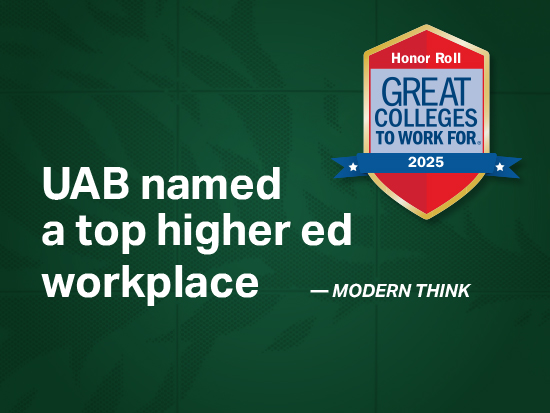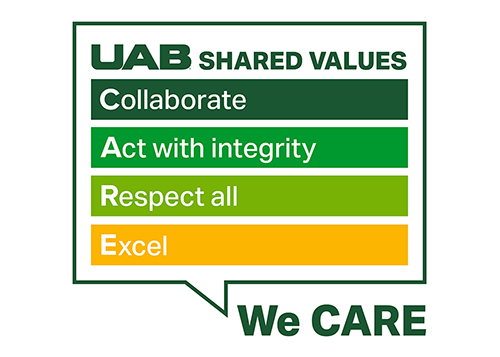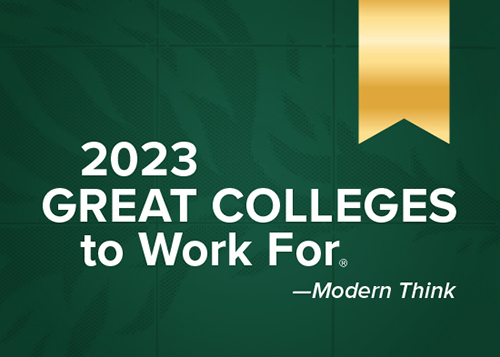You can help shape UAB's future
Since 2017, UAB has partnered with ModernThink to survey employees on how well certain aspects of the university, its leadership, and its processes are working.
The campus engagement survey is an important tool that helps us determine actions for improvement. Results from previous surveys have been instrumental in numerous improvements — from performance management, communication, workforce development, and employee-learning experiences to new institution-wide awards and more.
The most recent UAB Campus Engagement Survey was administered February 3-17, 2025. The findings of the 2025 survey were presented to the UAB community at a townhall in April. To view a recording of the presentation and to learn what is happening as a result of the 2025 Campus Engagement Survey, visit the 2025 Survey Actions page.
UAB among Great Colleges to Work For®
 As part of the Campus Engagement Survey, the Great Colleges to Work For® program compares survey results from participating institutions to recognize colleges that get top employee ratings regarding workplace practices and policies.
As part of the Campus Engagement Survey, the Great Colleges to Work For® program compares survey results from participating institutions to recognize colleges that get top employee ratings regarding workplace practices and policies.
In 2025, UAB was recognized as one of the best higher education workplaces in the nation, earning a spot on the prestigious 2025 Great Colleges to Work For® Honor Roll.
Read more about this recognition and next steps.




